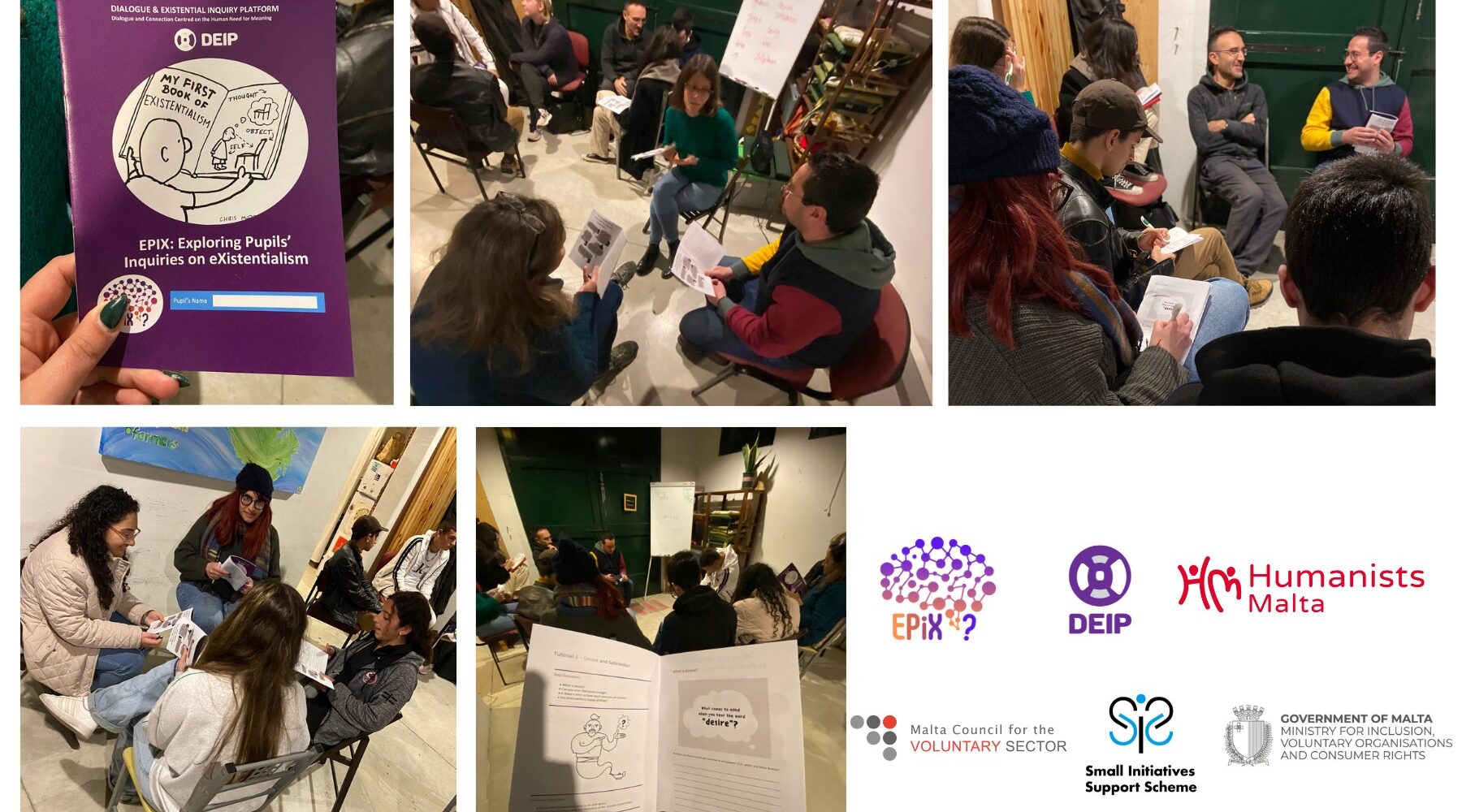


 James Buhagiar is the Vice Chair-Person of Humanists Malta. Believes that knowledge and implementation of the knowledge could be the key to a better future for all. Sees value in investing in younger generations and thus organizes training/activities and support for youth in leadership, self-development, and employability.
James Buhagiar is the Vice Chair-Person of Humanists Malta. Believes that knowledge and implementation of the knowledge could be the key to a better future for all. Sees value in investing in younger generations and thus organizes training/activities and support for youth in leadership, self-development, and employability.
Humanists Malta is pleased to have been able to deliver a training programme under the name of EPIX – Exploring Pupils’ Inquiries on eXistential themes .
For centuries, Maltese cultural identity has been shaped by the Roman Catholic Church, and for decades Malta was considered virtually 100% Christian. However, things have been rapidly changing in recent years, with surveys showing that faith and mass attendance are sharply declining, especially amongst the young.
Given these societal changes, and as religion isn’t felt to be as relevant as it once was, we saw a need to question how younger generations form, and are guided in, their ethical values and philosophy of life. In 2014, with our encouragement, the Maltese government introduced the Ethics Education syllabus as an alternative to the default religious (Roman Catholic) classes. This was an important step towards encouraging students to question their ethical beliefs, but anecdotal evidence suggests this option is not available in all schools, and only a small percentage of parents/guardians choose it for their children, even where it is available.
Against this backdrop, Humanists Malta, in collaboration with the Dialogue and Existential Inquiry Platform in Malta , successfully applied for funding for the EPIX project. Our objectives were to engage Maltese youths in critical thinking exercises, and tackle a variety of youth-centred topics from an existential humanist approach. We aimed to collaborate with Maltese secondary schools in deepening students’ inquiry into existential themes beyond the curriculum, through the use of philosophy.
Targeted at 14 and 15 year-olds, we sought to present profound existential topics such as the meaning of existence, anxiety, the nature of personal identity, authenticity, the possession of free will, and discomfort – or fascination – with death.
Commencing February 2022, the project saw the research, design and execution of an interactive training programme, delivered in two schools and one youth centre by a variety of qualified and experienced tutors, with an accompanying student workbook.
Participants were encouraged to question more deeply and engage in healthy discussion with their peers, forming meaningful connections with self and others. Five dialogue-based, small-group, tutorials were spread over 12 hours:
The project was funded for one year; however, we will continue in the future to deliver this training, and the material prepared for it, to Maltese youth in schools and youth centres, and plan to go further by extending it to different age cohorts in such as training centres, work environments and local communities.
This project has been funded by the Small Initiatives Support Scheme (SIS) managed by the Malta Council for the Voluntary Sector (MCVS) supported by the Ministry for Inclusion, Voluntary Organisations and Consumer Rights (MIVC).